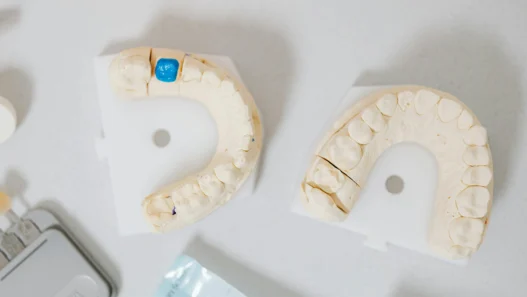
Extendicare Mississauga (855 John Watt Boulevard, Mississauga) is operated by Extendicare, a for-profit operator of long-term care homes in Canada. There are approximately 140 beds.
Inspection Reports for Extendicare Mississauga
Our research team carefully reviewed and summarized inspection reports for Extendicare Mississauga. You can read the original copies of the reports in the Government of Ontario website.
December 2023
The inspection at Extendicare Mississauga did not result in any findings of non-compliance. This indicates that, during the time of the inspection, the facility was successfully meeting the standards and regulations outlined in the Fixing Long-Term Care Act, 2021, particularly in the critical areas of resident care, medication management, and infection prevention and control.
September 2023
The inspection report was categorized as a Critical Incident inspection. The inspection, carried out from September 14-15 and 18-19, 2023, by lead inspector Patrishya Allis and additional inspector Colleen Lewis, focused on various incidents related to falls and injuries.
- Non-Compliance in Plan of Care: The inspection identified non-compliance regarding the written plan of care for a resident who had a fall resulting in a hip fracture. The resident was left unattended while toileted, despite being confused and at risk of rising from the toilet seat. It was confirmed by staff that close supervision while toileting was necessary for this resident, but this requirement was not documented in the resident’s care plan prior to the fall. This failure in implementing and documenting the necessary supervision in the care plan was noted as putting the resident at moderate risk for falling.
- Non-Compliance in Implementing Plan of Care: Another instance of non-compliance was found regarding the failure to ensure a protective device was placed on a resident as specified in their care plan. Observations revealed that the resident was not wearing the protective device, and a PSW confirmed that it had been removed and placed in the laundry. This neglect in following the care plan, specifically not ensuring the resident always wore the protective device, placed the resident at moderate risk for injury.
March 2023
This Critical Incident System Inspection, led by inspector Rajwinder Sehgal with additional inspectors present, took place from February 23 to March 7, 2023.
- Plan of Care: The licensee failed to reassess and update a resident’s care plan when their care needs changed, particularly after a physiotherapist’s assessment. The care plan was updated post-inspection on February 27, 2023.
- Infection Prevention and Control: Non-compliance was noted when an expired Alcohol-Based Hand Rub bottle was found in the dining area. This issue was immediately rectified by the Director of Care (DOC).
- Plan of Care: A resident sustained an injury due to staff not following their care plan, specifically the requirement for two-person assistance.
- Responsive Behaviours: Strategies were not developed and implemented for a resident exhibiting responsive behaviours, leading to an injury.
- Infection Prevention and Control Program: The home failed to comply with COVID-19 screening requirements, missing daily assessments for a resident over a significant period.
- Reporting Critical Incidents: There was a delay in reporting an incident to the Director involving a resident’s fall that resulted in significant health changes.
December 2022
Lead Inspector Waseema Khan, along with additional inspectors, carried out this Critical Incident System Inspection from December 2 to 9, 2022. This inspection primarily investigated an alleged staff to resident abuse incident, employing inspection protocols related to the Prevention of Abuse and Neglect, and Infection Prevention and Control.
- Plan of Care: Non-compliance was noted regarding the care provided to a resident. Specifically, a Registered Practical Nurse (RPN) and a Personal Support Worker (PSW) did not adhere to the ‘Stop and Go’ approach as detailed in the resident’s care plan during peri-care and changing of incontinence products. The resident expressed discomfort about the water temperature and resisted care, but the staff did not follow the specified care strategy.
- Policy to Promote Zero Tolerance: There was a failure to comply with the home’s written policy promoting zero tolerance of abuse and neglect. This non-compliance was evident when an RPN and PSW continued to provide care despite the resident being upset, leading to an incident where the resident felt mishandled. Additionally, an RN did not immediately report the resident’s disclosure of this incident as required by the home’s policy, instead reporting it the following day. This lapse in adherence to the policy posed a moderate risk of harm to the resident.
November 2022
The inspection report, issued on November 4, 2022, under the Fixing Long-Term Care Act, 2021 by the Ministry of Long-Term Care’s Toronto District office, was conducted at Extendicare Mississauga. Lead Inspector Noreen Frederick, along with additional inspectors, performed this inspection, which combined aspects of a Complaint and Critical Incident System inspection. The inspection took place over several days in late October 2022 and focused on specific intakes related to sexual abuse, staffing and air temperatures, and infection prevention and control.
The main issue identified was the failure of the licensee to conduct regular Infection Prevention and Control (IPAC) audits as mandated by the Minister’s Directive. Specifically, the licensee did not complete two required IPAC audits during periods when the home was in a COVID-19 outbreak. Regular IPAC audits are essential for maintaining health and safety standards, especially during outbreaks, and their absence represented a missed opportunity for the home to identify and address potential issues in their IPAC program. This non-compliance was acknowledged by the IPAC Manager.
June 2022
The inspection report focused on several key areas of concern, predominantly related to complaints about neglect, skin and wound care, nutrition and hydration, infection prevention and control, and personal support services.
- High Temperature in Hallways: On May 31, 2022, an inspection observed excessively high temperatures in the facility’s west and east hallways, recorded at 27.2 degrees Celsius. This was above the standard limits, spanning from May 30 to May 31, 2022. The Environmental Service Manager reported ongoing maintenance on the air conditioning unit, which was fixed on May 31, 2022. Portable air conditioning units were then implemented in the hallways, and no resident harm was reported.
- Plan of Care: A complaint indicated that a resident, identified as Resident #001, was transferred to a hospital appearing neglected and malnourished, with skin impairments. The resident, deemed palliative, had a history of skin issues and had received various treatments. However, the transfer report to the hospital lacked detailed medical history and recent changes in the resident’s condition. The facility’s administration acknowledged the need for better collaboration and documentation on the transfer report for continuity of care.
April 2021
The inspection report was conducted as a follow-up inspection by Nital Sheth on April 12 and 13, 2021. This inspection focused on evaluating the implementation of a previously issued compliance order related to the plan of care).
The previously issued compliance order related to the plan of care was found to be in compliance during this inspection.
No new non-compliances were issued during this follow-up inspection.
November 2020
A critical incident system inspection was conducted in response to an unexpected death of a resident, identified as resident #001, who had a history of mental health issues and a previous self-harm attempt.
The inspection revealed significant non-compliance with the resident’s plan of care. Notably, the resident, who had been experiencing a recurring infection and behavioral changes, was not monitored every half hour as per their updated care plan. This lack of monitoring was a critical factor on the night of the resident’s death. The charge nurse on duty was not fully aware of the resident’s recent behavioral changes or the specific monitoring requirements. Consequently, the resident was not checked as frequently as required and was later found in a state of self-harm.
The report highlighted a failure in communication among the staff, particularly in conveying crucial information about residents’ care plans during shift changes. The inspectors issued a Compliance Order to Extendicare, mandating corrective actions. These actions included additional training for the nursing staff and personal support workers on the Dementia Observation System (DOS) monitoring, enhanced communication protocols, and a review of roles and responsibilities for resident supervision.















